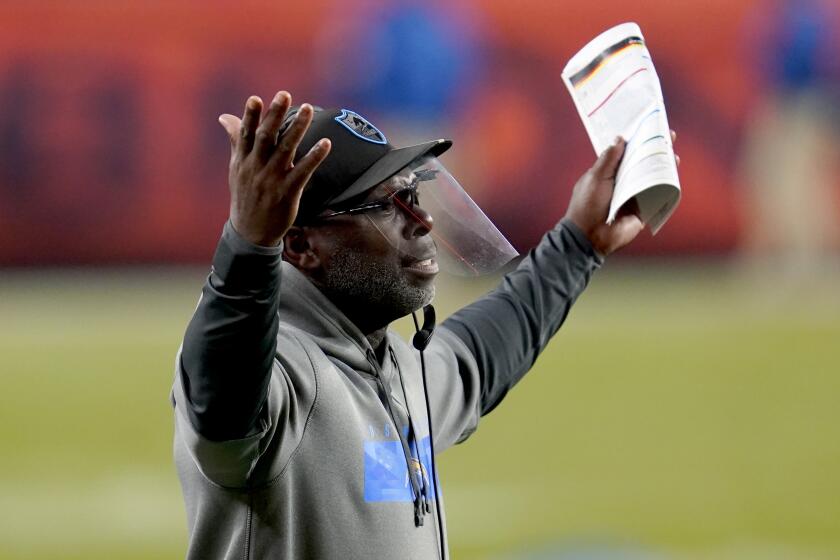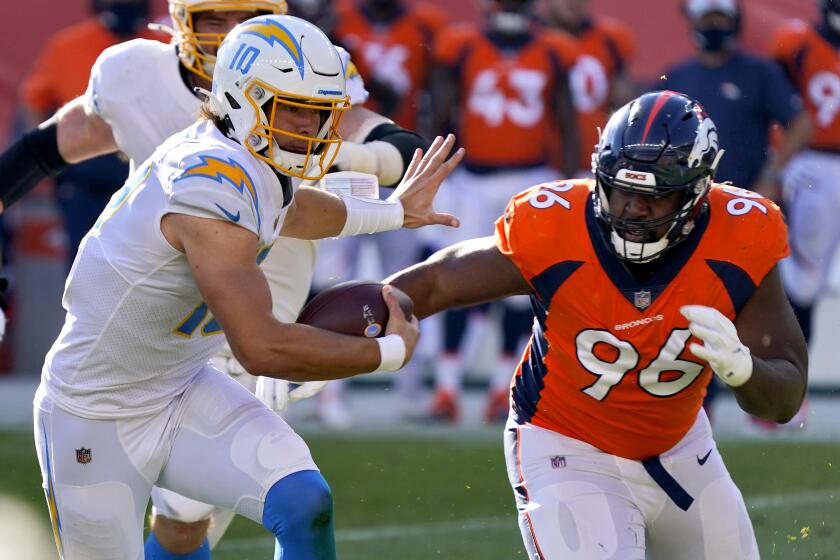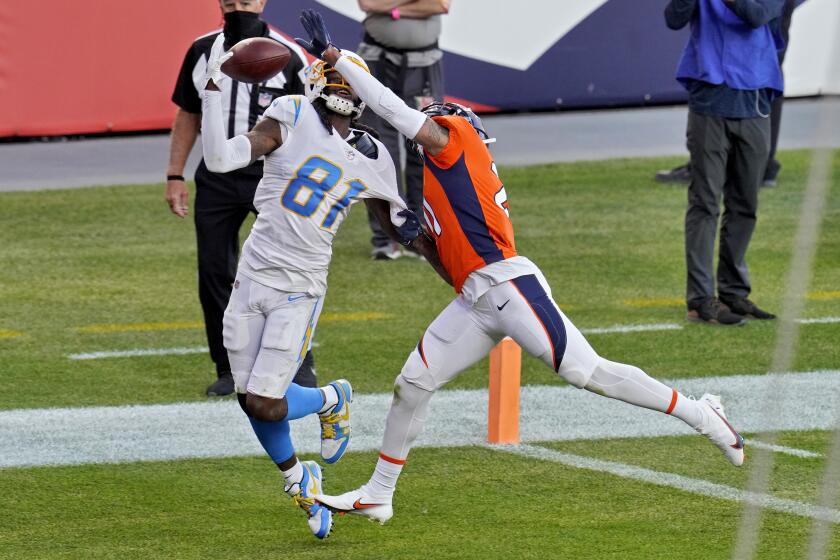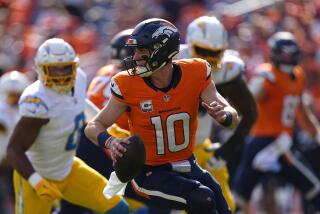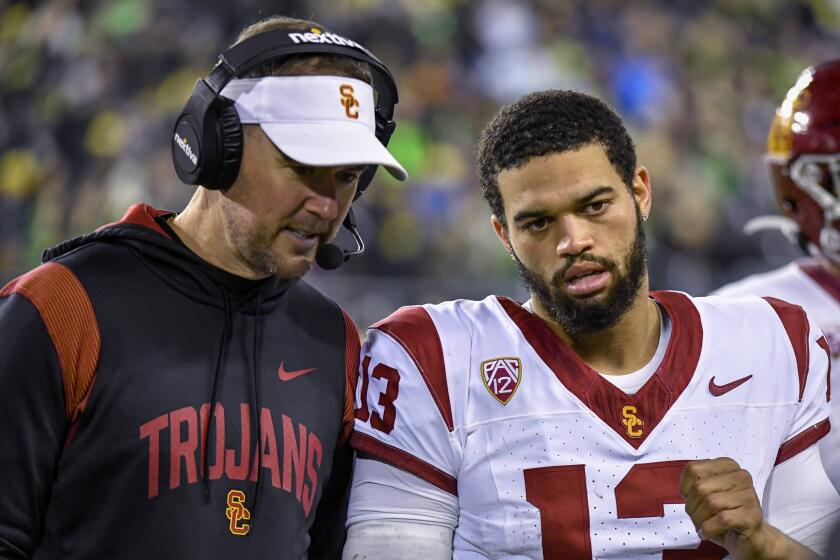How did Chargers lose another heartbreaker? Let’s look at the last drive
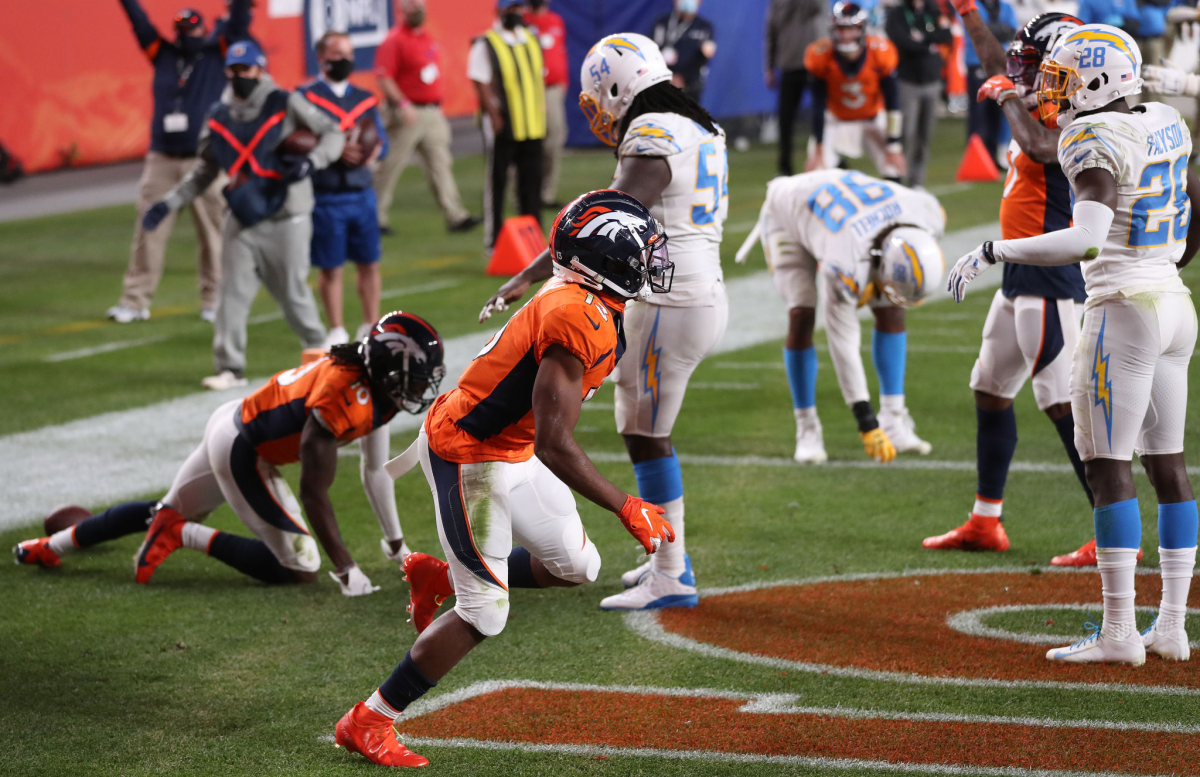
The Chargers didn’t force Denver Broncos rookie KJ Hamler into making a spectacular, toe-dragging catch with both feet for his first NFL touchdown.
Instead, he just used his backside.
Trailing by six points, the Broncos marched 80 yards to the Chargers’ one-yard line with one second left, a pass interference call in the end zone setting them up there. Hamler jetted across the formation as quarterback Drew Lock collected the snap and rolled right, then threw a strike near the corner of the end zone.
Hamler, a second-round draft pick from Penn State, caught the pass and slid out of bounds on his derriere before Chargers cornerback Tevaughn Campbell located the ball. After a quick discussion, the referees ruled he had scored. The extra point gave the Broncos a 31-30 victory, and finished a 14-play drive that capped Denver’s comeback from a 21-point deficit.
“We have to learn how to finish,” said safety Rayshawn Jenkins, who was covering Helmer on the final play but also isolated in open field with Lock as he scrambled. “We can’t let these games like this slip away. This is the NFL, it just doesn’t make sense.”
The Chargers’ latest late-game meltdown comes when they give up a touchdown with no time left in regulation in their 31-30 loss to the Denver Broncos.
Since last season, the Chargers are 3-14 in games decided by one score. At one point, they were up 24-3 against the Broncos midway through the third quarter, but Lock orchestrated three touchdown drives in the fourth.
But the Chargers’ offense, even as it failed to score a touchdown in the fourth quarter and kicked two field goals instead, put the defense in a manageable situation.
“We had the players out there on defense to get a stop. It didn’t happen,” wide receiver Keenan Allen said. “But at the end of the day, I like our defense over anybody.”
The Chargers’ defense held former teammate Melvin Gordon in check. He finished with 47 yards from scrimmage but had a big impact on the final drive.
Justin Herbert put in another encouraging performance for the Chargers on Sunday against the Broncos, but the team still lost.
He touched the ball six times for 28 yards, his most crucial contribution coming with 31 seconds left. He caught a pass from Lock one-handed on third and five with cornerback Brandon Facyson draped over him, then stretched his arms for a first down. Officials initially ruled him short, but a booth review overturned it.
Four plays later, with the ball on the Chargers’ 18-yard line, Lock threw to the end zone toward tight end Albert Okwuegbunam. The pass fell incomplete, but referees flagged Facyson for interference, putting the ball on the one-yard line. Jenkins said he felt that call “could have went either way.”
Jenkins added the scrambling last play was chaotic, but felt defensive coordinator Gus Bradley had made a good play call.
The execution? Jenkins said if they had done their assignments better earlier, they wouldn’t have been in that situation.
“We have to take it play by play and just live it in that moment,” Jenkins said, “especially when you look up and there’s 20 seconds to go in the game. We have to do better than that.”
Breaking down the notable numbers behind the Chargers’ 31-30 loss to the Denver Broncos on Sunday.
Coach Anthony Lynn said he didn’t like watching that last drive knowing they were up six points, but felt they’d deliver a stop.
Afterward, he didn’t stop believing.
“Everything we want is still in front of us,” he said. “I have to get this team’s spirits back up and headed in the right direction.”
More to Read
Go beyond the scoreboard
Get the latest on L.A.'s teams in the daily Sports Report newsletter.
You may occasionally receive promotional content from the Los Angeles Times.
